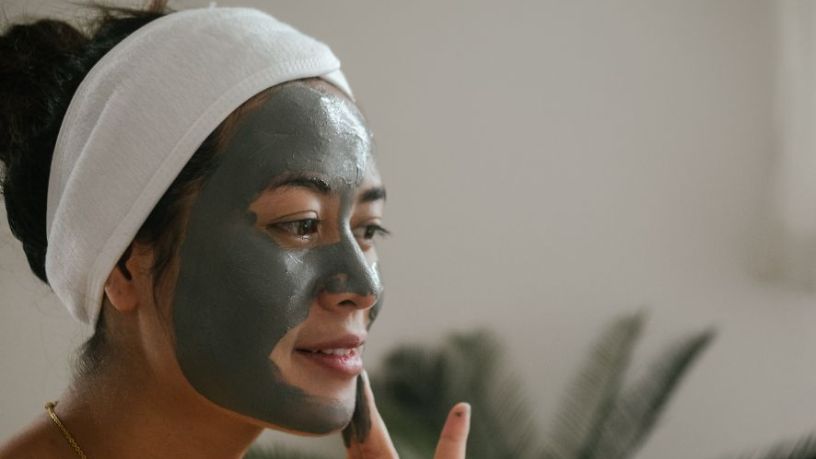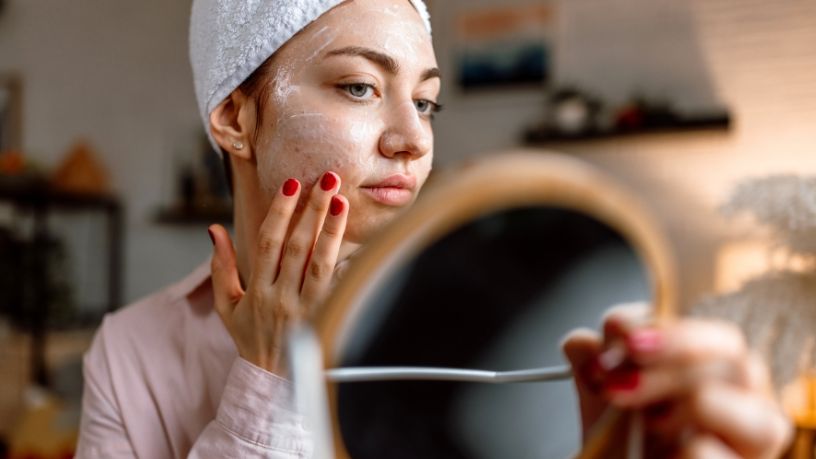There is no legal definition of ‘natural’, meaning the word can be put on almost any product.
On this page
Key takeaways
Organic is only organic if it is certified and has the proper logo printed on the product.
Take the time to read labels and ingredients before paying a lot of money for something that may not be what it seems.
When it comes to the stuff we buy, there’s something about the words ‘natural’ and ‘organic’ that have the power to make products feel healthier for us and the planet. Whether they’re describing a packet of lollies or a toilet cleaner, they just feel superior.
Beauty products are particularly persuasive, tapping into the ideal of natural beauty and an effortlessness that radiates ‘I woke up like this' energy.
And it works. In 2022 the global organic skin care market was worth USD$10.49 billion (and it’s growing!).1
But while they’re often viewed as one and the same, natural and organic skin care have different standards.
Organic skin care is natural, but natural isn't necessarily organic.
Confused yet? We unpack the difference between natural and organic skin care and find out if it’s worth the hype (or the price tag).
What is natural skin care?
Because there’s no legal definition of the word ‘natural’, what constitutes natural skincare is open to interpretation.
Broadly speaking, ‘natural’ skin care products primarily use ingredients which come from a natural source. That means natural oils, plants, fruit extracts and fruit acids.
Studies show some plant extracts (as a source of vitamins, antioxidants, essential oils, proteins and other bioactive compounds) are a safe and cost-effective alternative to synthetic products.2
While ‘true’ natural products are free from artificial ingredients, using ‘natural’ in the name doesn’t necessarily mean the product is chemical-free. Some products are mixed with synthetic ingredients (like preservatives, surfactants, humectants, and emulsifiers).
The manufacturing process is important too.
If the ‘natural ingredients’ have been chemically processed, the molecular structure has been irreversibly changed. So, when it lands on the shelf, it’s not-so-natural.
While natural skin care sounds good, it’s not necessarily:
- organic
- clean
- eco-friendly
- ethically sourced
- cruelty free.
What is organic skin care?
Certified organic products have to meet strict criteria provided by regulators either in Australia or internationally.3
Certified organic products are made from natural ingredients (natural oils, plants, fruit extracts and fruit acids) but they’re grown and processed without synthetic chemicals.
Under the ‘certified organic’ label, skincare products are free from the chemicals used in many mainstream products, which may be harmful to the planet and your health.
You might have seen '100% organic' labels on products, but 's virtually impossible and quite misleading.
Most products contain water, which may be natural but isn’t officially organic. They may also use native or wild ingredients that don’t classify as organic.
Organic skin care is also not necessarily vegan or cruelty-free.
Are natural and organic products better?
When it comes to skincare, the labelling language can be ambiguous. As a consumer, you need to be careful about the products and brands you choose to avoid being misled.
That means reading product labels to make sure they don’t include any ingredients you’d rather avoid, and they contain enough of the natural goodness you’re paying for.
Simply saying ‘natural’ or ‘organic’ doesn’t mean much. Seek out credible, transparent brands which show the percentage of organic and natural products on the label. And if you’re after skincare products that are guaranteed to be organic, look for the organic certification logo.
It’s worth mentioning true natural and organic skincare products won’t last as long because they’re free from preservatives. Check the use by date if it has one, and if the product doesn’t look, feel, or smell right it’s best to avoid using it.
Natural products aren’t automatically low irritant or safer either.
You might have seen '100% organic' labels on products, but that's virtually impossible and quite misleading.
Essential oils in particular can cause skin irritation and sensitivity for some.
So, whether it’s natural, organic, clean, green or vegan, be sure to patch test any new product before lathering it on your skin and stop using any product that causes a reaction.

At Bupa, trust is everything
Our health and wellbeing information is regularly reviewed and maintained by a team of healthcare experts, to ensure its relevancy and accuracy. Everyone's health journey is unique and health outcomes vary from person to person.
This content is not a replacement for personalised and specific medical, healthcare, or other professional advice. If you have concerns about your health, see your doctor or other health professional.
1Grand View Research. (2020). Natural Skin Care Products Market Size, Share & Trends Analysis Report By Type (Mass, Premium), By Product (Facial Care, Body Care), By End-use (Men, Women), By Distribution Channel, By Region, And Segment Forecasts, 2022 – 2030. Grand View Research.
2Ribeiro, A., Estanqueiro, M., Oliveira, M., & Lobo, J. (2015). Main benefits and applicability of plant extracts in skin care products. Cosmetics, 2(2), 48-65.
3Australian Competition & Consumer Commission. (2023). Organic claims. Australian Competition & Consumer Commission.
You might also like...
Living low tox: What it is and how you can do it
Let’s talk toxins and how you can reduce them in your life.
Clean beauty: What does it mean?
There are whole sections dedicated to clean beauty at some of Australia’s biggest beauty retailers. But what does ‘clean beauty’ mean, and is it worth it?
Have you been greenwashed?
Natural and sustainable products are gaining popularity. But how can we know if a brand is the real eco deal or just green washing?
What is skin cycling?
If you’ve been scrolling through your socials lately, you might have noticed a new skincare routine making the rounds. But what exactly is skin cycling?





